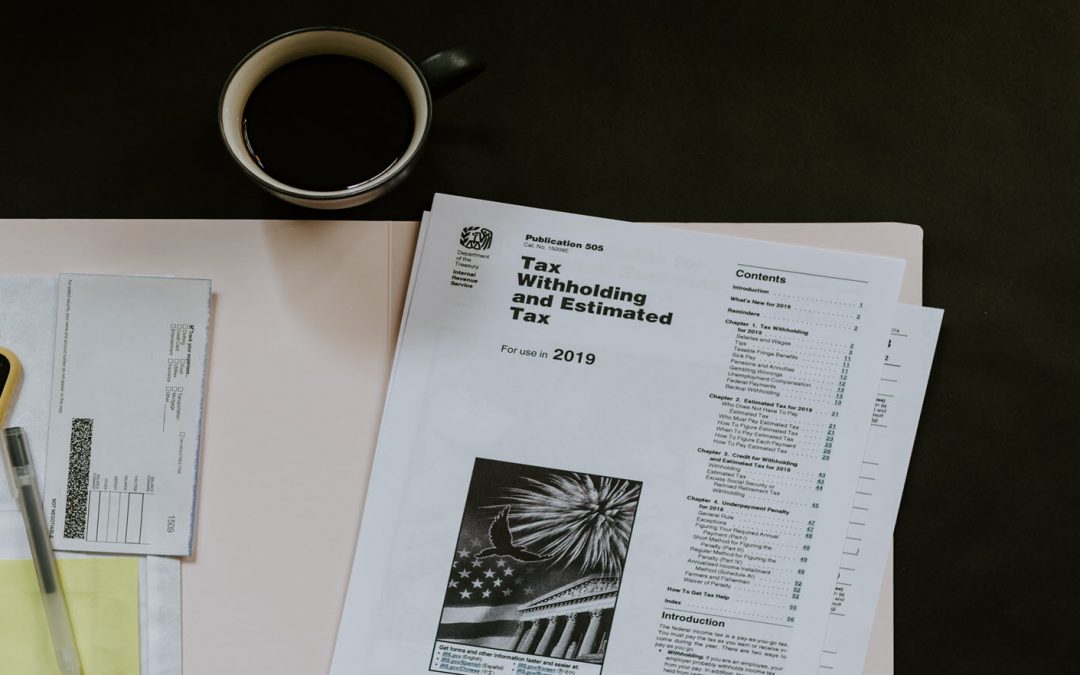Update: The day after we broke this story, The U.S. Department of Treasury recognized the potentially serious hardships the “substantial presence test” was imposing on non-resident aliens and UTSBs stuck in the U.S.A. in the midst of the Coronavirus pandemic. CLICK HERE TO READ OUR UPDATED POST on this developing change to U.S. tax law.
The outbreak of COVID-19 (the coronavirus) has significantly disrupted and impacted the world. The global nature and dramatic lock down /stay at home orders undertaken by governments around the world have left many individuals and families dislocated. Among the victims: non-United States persons (NRAs) stricken with the disease while visiting the U.S. and unable or unwilling to return to their country of residence.
The results of this for non-U.S. persons (NRA) could have severe U.S. tax implications. Though many were not able to return home due to travel restrictions by the U.S. and their countries of origin, they were unaware that by exceeding their length of stay they could be subject to U.S. income taxes on their worldwide income and assets and severe tax penalties related to non-compliance.
For foreign visitors temporarily remaining in the U.S. due to coronavirus, the unintended-yet-significant consequences may be able to be avoided. U.S. tax liability may be avoided if a swift review of U.S. tax residency is conducted and appropriate planning is undertaken, if needed.
Why would any NRA affected while in the U.S. be concerned? They are not a citizen or resident of the U.S. so how could this possibly have any impact on their lives?
If an NRA is deemed a U.S. tax resident they will be treated as a U.S. citizen for U.S. tax purposes and will be subject to the same rules as a U.S. citizen such as:
- Taxation of income from wherever sourced (worldwide income)
- Reporting of worldwide assets and international business activities / and investment transactions
- Potential taxation by a U.S. State. New York and California have some of the highest tax rates in the U.S.
- State tax rates can be as high as 13{105615a82985984cf1704e8776ec685e1345b73ddec43811fd3f038097961455}, and would be imposed in addition to the federal income tax liability.
- Potential issues of U.S. gift and estate tax could occur as a result of a status change from NRA to U.S. tax resident.
Take note: the U.S. imposes severe penalties on all taxpayers for non-reporting of worldwide financial and business activities that meet certain criteria and thresholds regardless of any income generated. The penalties start at $10,000 per transaction, activity or account per year and can be as high as $50,000 per transaction, activity, or account per year.
Estate and gift taxes can be as high as 40{105615a82985984cf1704e8776ec685e1345b73ddec43811fd3f038097961455} of the value of the asset which is transferred during life or at death.
As you can see, the severity of financial loss should be of concern to NRAs should they be deemed to be a U.S. tax resident, even if that wasn’t their intention!
Will the Current Tax Law Allow for Covid-19 Exceptions?
At this point you are probably wondering: How could such a situation put a person at risk for U.S. tax residency? This does not seem possible!
NRAs who are stuck in the U.S. due to an illness or quarantine of themselves or loved ones or due to legal or practical restrictions could unintentionally stumble over the U.S. tax residency rules and find themselves entangled in the U.S. tax system.
The tests for U.S. tax residency are in the U.S. tax code. (Title 26 of the United States Code aka the Internal Revenue Code, (“IRC)), specifically IRC §7701(b) which was enacted by the U.S. Congress in 1984.) When these rules were enacted they did not contemplate such a situation as a pandemic like the current coronavirus. This means there is no guidance except the Code itself and related regulations in relation to this current situation.
The above-mentioned law provides two tests to determine a non-U.S. citizen’s U.S. tax residency status.
- The Green Card Test
The first test is generally referred to as the “green card” test which basically states that if a non-U.S. citizen has obtained permanent U.S. residency status they are treated as U.S. income tax residents. The tax rules are the same as a U.S. citizen, absent any determination of foreign residency pursuant to a tax treaty between their home country and the U.S.
- The Substantial Presence Test
The second test is generally referred to as the “substantial presence test” (SPT). This test is the more relevant one in regards to the COVID-19 situation. The SPT is relevant only to NRAs who do not have lawful permanent resident status (a U.S. Green Card). It is the SPT test that must be carefully reviewed to avoid U.S. tax residency status. Under this test an NRA will be treated as a U.S. tax resident for a calendar year if the individual is present in the U.S. for at least 183 days in the current year or more during the calendar year. OR, if the NRA is present at least 31 days during the calendar year and the sum of the number of days for the current calendar year and the preceding two calendar years averages more than 121 days per year.
There is an exception to the above rule. If the person who meets the SPT is not in the U.S. for at least 183 days in the first year and they have what is defined as a “tax-home” in a foreign country they may be able to claim what is known as a “closer connection” exception to the SPT rules. However, this exception is not available if the individual has taken intentional measures to apply for a Green Card (i.e., U.S. permanent resident status). However, if the closer connection exception is not available due to the fact the person was present in the U.S. for 183 days or more, they may still avoid U.S. tax residency. If the NRA’s home country has a tax treaty with the U.S., and if under the residency rules of that treaty they can meet tests similar to that of the closer connection exception tests, they are exempted. Generally, the closer connection exception tests and tax treaties consider: the number of days spent in each of the countries where a person’s tax home (generally place of work / business) is located, where items of significance are primarily located, and their citizenship status with each country.
Exceptions to the SPT Rules
U.S. tax law also provides additional exceptions to the strict SPT rules. Such as, an NRA is not treated as being in the U.S. on any day the individual is considered a so called “exempt individual”. This includes an NRA who is a full-time student on a student visa and has not been in the U.S. more than 5 years. There are also exceptions for teachers, certain diplomats and other foreign-government related persons, professional athletes performing for charitable purposes, an NRA who is in transit to another foreign country, or is a regular commuter to and from Mexico or Canada for employment purposes. An individual can also gain exemption if they meet a medical condition exception.
It is this exception that may be most useful for some NRAs in the U.S. who have been affected by the Covid-19 situation. The rule states that if a person was struck down by the virus while in the U.S., they will generally not have to be concerned with the amount of days spent in the U.S. due to their inability to return to their home country. But unfortunately, in the absence of additional U.S. government guidance, this does not apply to individual family members who were not infected with the virus.
Hence, a family member who was not infected or diagnosed with Covid-19 but may have for practical reasons, legal matters or other practical matters had difficulty leaving the U.S., will, without further guidance, have a tough time claiming a medical exception to the U.S. tax residency rules.
It should be noted that there are separate residency rules for U.S. estate and gift taxes, and as mentioned there could also be U.S. State income tax issues resulting from being in the U.S. as a result of the Covid-19 pandemic. The States are not required to abide by any tax treaty rules established by the U.S. federal government and a foreign country.
IWTA Can Assist Non-Resident Aliens with Urgent Tax Matters
International Wealth Tax Advisors can provide assistance by calculating the number of days spent in the U.S. for purposes of the SPT, including evaluating your prospects for successfully relying on either the medical condition exception, a treaty, or the “closer connection” test provided under U.S. tax law. We can also assist in preparing any tax return required to take advantage of tax law exceptions.
For assistance or more information. please contact Jack Brister. You can book a virtual appointment here.








